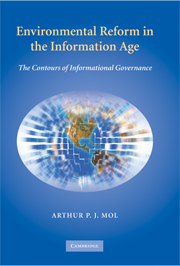11 - Balancing informational perspectives
Published online by Cambridge University Press: 03 November 2009
Summary
Introduction
In its 2005 report Towards Knowledge Societies, the United Nations Education, Scientific and Cultural Organisation (UNESCO) discusses to what extent the emerging knowledge societies are risk societies. UNESCO concludes that knowledge societies are rather the answer to – than the cause of – risk societies, as they constitute one of the most effective means of dealing with new complexities and risk. But, by the same token, UNESCO accurately describes – in their own words – the challenging issues at stake in where knowledge societies are confronted with risks and unsustainable development (UNESCO, 2005: 142):
The concept of knowledge societies and the central role played by networks correspond very precisely to these new requirements of collective action, capable of mobilizing all the resources of governance and science in real time as well as in the long term, with a pluralistic international approach in mind. […] In the fields of sustainable development, environment protection and global health, the complexity of the data and the stakes involved exclude any possibility of a single response or a unique viewpoint, particularly where experts are uncertain when confronted by a new issue. The need here is to institutionalize, as it were, the fact that any question on a global scale is, initially in any case, too complex to command unanimity, even in the scientific world.
This diverts not too much from the central subject and analysis in this volume.
- Type
- Chapter
- Information
- Environmental Reform in the Information AgeThe Contours of Informational Governance, pp. 275 - 292Publisher: Cambridge University PressPrint publication year: 2008



